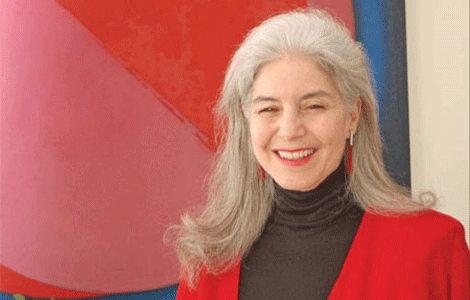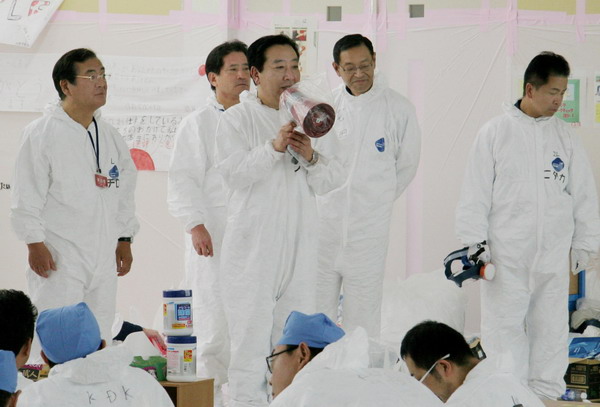Photos
Japan PM visits disaster-hit areas, thanks military
Updated: 2011-09-08 21:37
(Agencies)
TOKYO - Japanese Prime Minister Yoshihiko Noda on Thursday travelled to disaster-hit Fukushima, thanking military personnel involved in the cleanup of a crippled nuclear plant as one of his first official gestures less than a week after taking office.
Noda, who had said bringing the nuclear crisis under control as soon as possible was one of his top priorities, visited members of the military based not far from the Daiichi nuclear power plant in Fukushima, 240 kilometres (150 miles) northeast of Tokyo.
He later went to the Daiichi plant itself, which was devastated by an earthquake and tsunami in March that left about 20,000 dead or missing.
"The world is hoping for this accident to be brought under control. This is our first and foremost and biggest issue and you are key to whether we can overcome this," Noda told workers at the plant.
Noda's predecessor, Naoto Kan, resigned after his voter support ratings plummeted due to dissatisfaction with his handling of the nuclear crisis.
Kan flew to Daiichi soon after the March disaster but it took him another three weeks to make his first visit to the tsunami-devastated regions, drawing heavy criticism.
At the deployment's peak, about 100,000 of Japan's 230,000 troops were dispatched to the disaster-hit areas to search for bodies and survivors, clear roads and deliver supplies.
In the early days of the crisis, some units were also deployed to spray water on overheating reactors at the Daiichi plant from helicopters and water cannons.
Noda later told the governor of Fukushima prefecture that the government plans to decontaminate areas with high radiation by using money from the 220 billion yen ($2.8 billion) reserve fund for this fiscal year's budget, Jiji news agency reported.
Recent polls have shown that a majority of Japanese voters support Noda as his call for unity within the ruling party and conciliatory stance towards the opposition raised hopes for speedy policy implementation.
But the former finance minister faces enormous challenges, such as coping with a strong yen that threatens to undermine exports, forging a new energy policy while ending the crisis at Daiichi, and rebuilding the devastated areas while trying to rein in Japan's massive public debt.
E-paper

Way over the moon
After an outcry several years ago about wasteful packaging, it seems that the mooncake makers of China have seen the light.
From death matches to child's play
Tomb raiders remain a menace
Kicking for joy
Specials

China at her fingertips
Veteran US-China relations expert says bilateral ties have withstood the test of time

The myth buster
An outsider's look at china's leaders is updated and expanded

China in vogue
How Country captured the fascination of the world's most powerful fashion player

